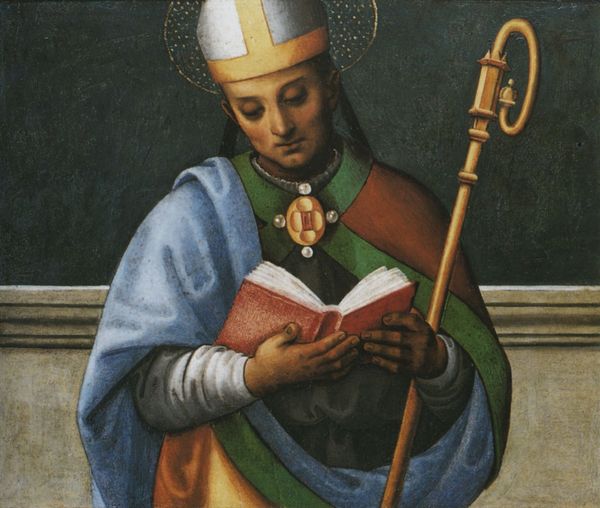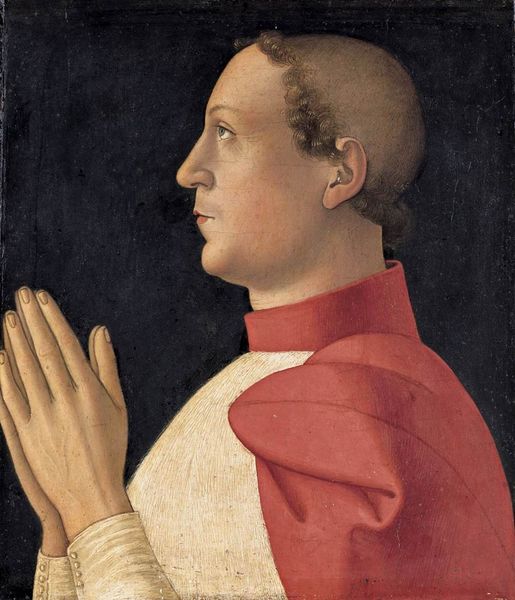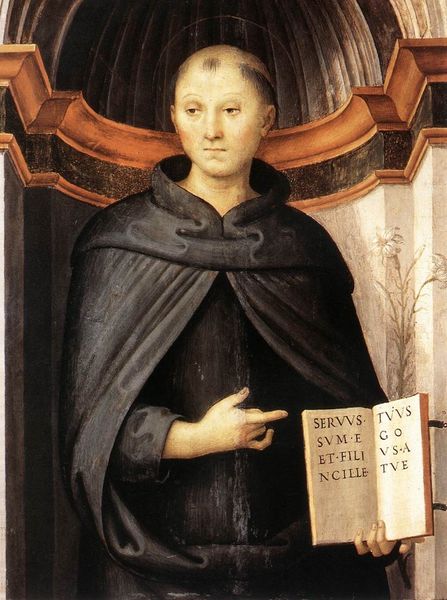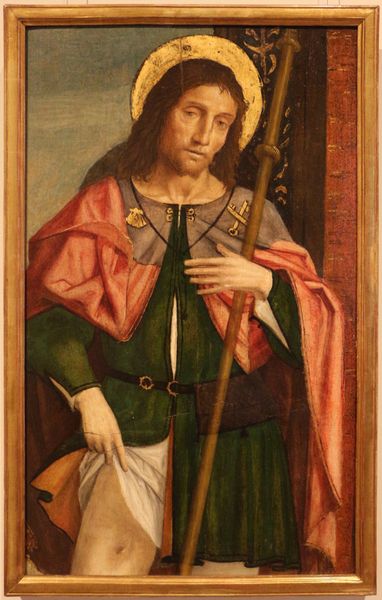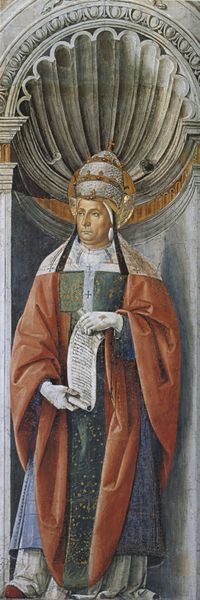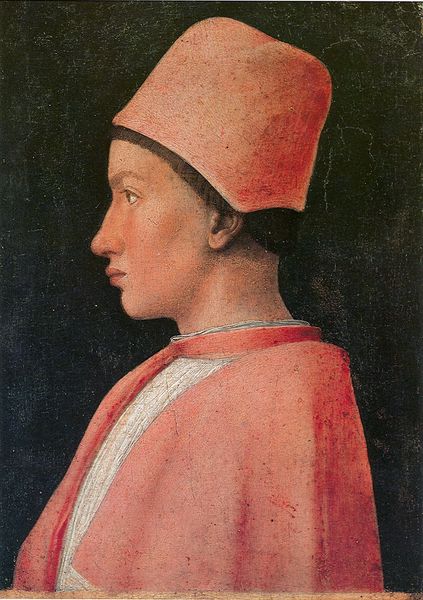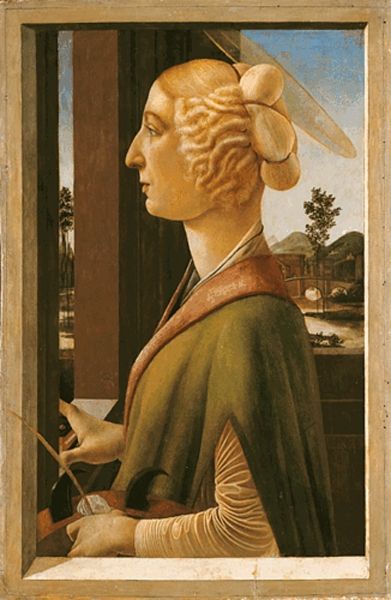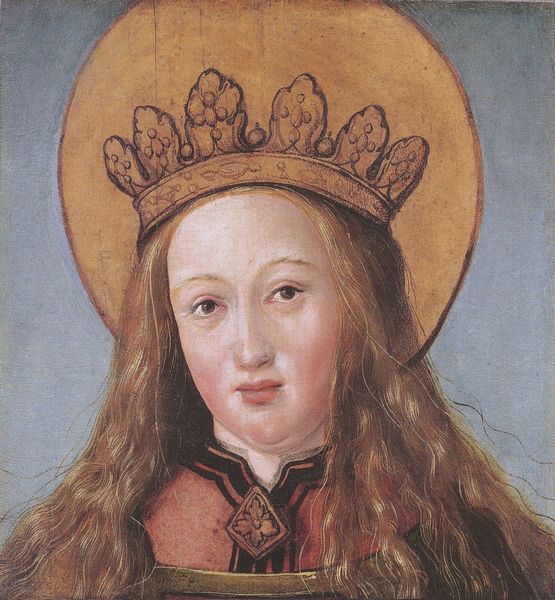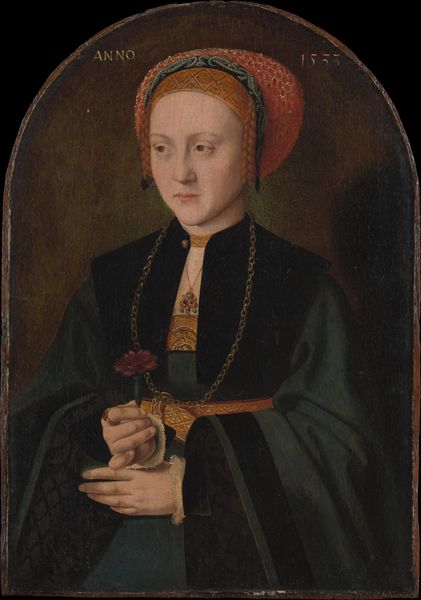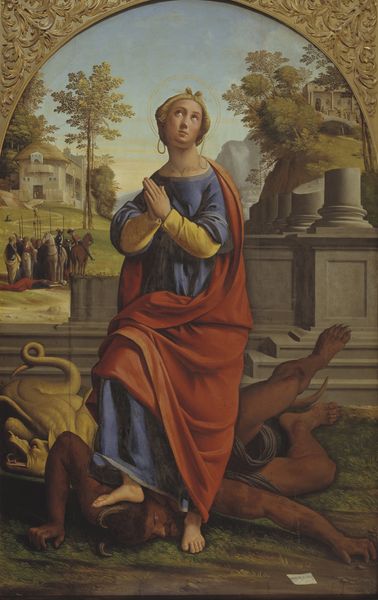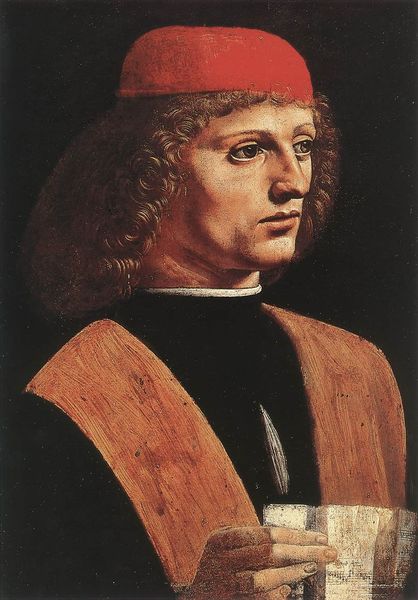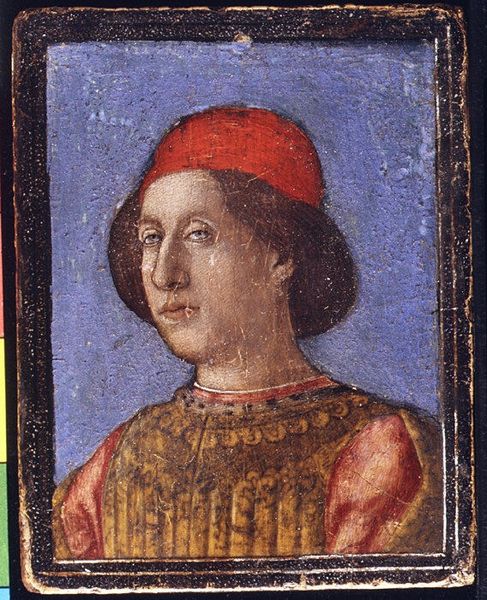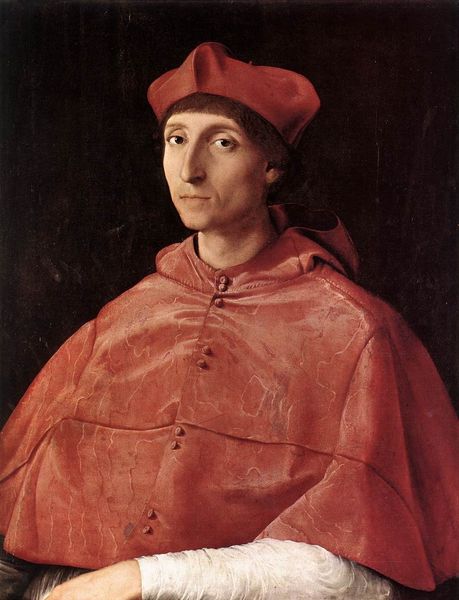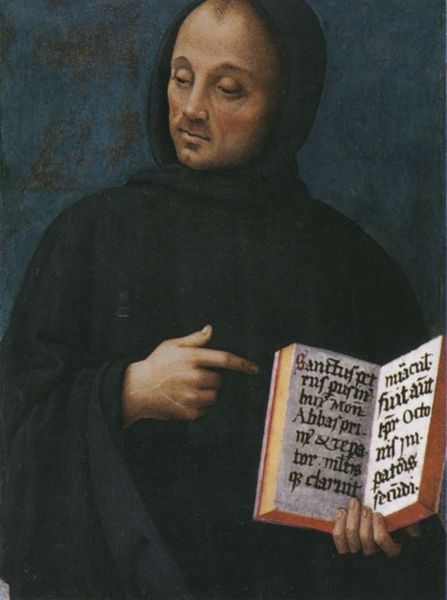
tempera, painting
#
portrait
#
high-renaissance
#
tempera
#
painting
#
history-painting
#
academic-art
#
italian-renaissance
Copyright: Public domain
This panel of Saint Peter, or Saint Ercolano, was painted by Pietro Perugino as part of a polyptych. Perugino was at the center of image production in the late 15th century, and this is a classic example of his style. He understood the public role of art in the highly religious environment of Italy at the time. The image creates meaning through visual codes, cultural references, and historical associations. Saint Peter holds symbols of knowledge and power, a book and staff respectively. This image and others like it would have been commissioned by the church, and would shape the religious experience of the average person. The church was the primary patron during this period and as such held immense influence on the art that was produced. By studying these visual codes and historical contexts, we can better understand how art shapes and reflects the values of its time. We can learn how institutions influence artistic expression. We can come to understand how cultural objects gain significance through their relationship with history and society.
Comments
No comments
Be the first to comment and join the conversation on the ultimate creative platform.
